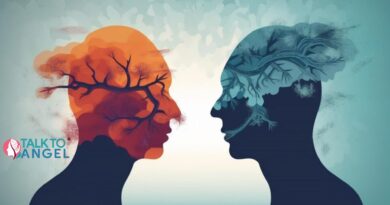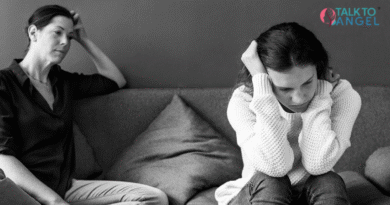Coping with Mood Swings in Bipolar Disorder
Extreme changes in mood, including emotional highs (mania or hypomania) and lows (depression), are symptoms of bipolar disorder. These changes can disrupt a person’s daily life, relationships, and work. Coping with these mood swings is essential for maintaining balance and improving the quality of life.
This blog provides simple and practical tips to help manage mood swings in bipolar disorder and introduces trusted psychologists from ThePsychowellness, who specialize in bipolar disorder care.
Understanding Bipolar Mood Swings
- Mania or Hypomania:
- Symptoms: Feeling overly energetic, euphoric, or irritable. Risky behaviors, decreased need for sleep or sleep disturbance, and rapid thoughts are common.
- Impact: People may make impulsive decisions or feel invincible, leading to regrets later.
- Depression:
- Symptoms: Feeling sad, hopeless, or losing interest in activities. Changes in starvation or sleep patterns, as well as difficulty paying attention, are common.
- Impact: It can feel like a heavy cloud, making even small tasks overwhelming.
Coping Strategies for Bipolar Mood Swings
- Stick to a Routine
- Maintain a consistent sleep schedule, mealtimes, and daily activities.
- Regularity helps stabilize your body and mind, reducing the intensity of mood swings.
- Monitor Your Moods
- To find the trends or triggers, use a mood tracker.
- Early awareness of changes can help you take proactive measures.
- Practice Healthy Lifestyle Choices
- Exercise: Physical activity releases endorphins, which improve mood.
- Nutrition: Eat a balanced diet and avoid excessive sugar, caffeine, or alcohol.
- Sleep: Strive to get between seven and nine hours of quality sleep every night.
- Manage Stress Effectively
- Incorporate relaxation techniques like yoga, deep breathing, or mindfulness meditation into your routine.
- Divide work into smaller steps to prevent feeling overburdened.
- Develop a Support System
- Open up to reliable friends or family members about your emotions.
- Connect with support groups to meet others experiencing similar challenges.
- Follow Your Treatment Plan
- Take prescribed medications regularly and attend therapy sessions.
- Avoid making changes to your treatment without consulting your doctor.
Counseling at Psychowellness Center
The Psychowellness Center provides expert counseling services tailored for individuals coping with bipolar disorder. The center focuses on providing evidence-based therapies, including Cognitive Behavioral Therapy (CBT), Dialectical Behavior Therapy (DBT), and mindfulness techniques. Counseling here is tailored to help clients identify triggers, develop coping strategies, and improve overall emotional stability.
With a team of experienced best psychologists, ThePsychowellness ensures that each client receives personalized attention and support in a safe and empathetic environment. They also offer online counseling services through their platform TalktoAngel, making it easier for individuals to access professional help from the comfort of their homes.
How Psychotherapy Can Help
An essential aspect of bipolar disorder management is psychotherapy, sometimes known as talk therapy. Therapists provide strategies to:
- Recognize early warning signs of mood changes.
- Develop healthy coping mechanisms.
- Improve relationships and communication.
The ThePsychowellness offers expert psychologists who specialize in managing bipolar disorder:
Recommended Psychologists at ThePsychowellness
- Dr. R. K. Suri
- A clinical psychologist with more than 30 years of professional experience.
- He specializes in helping individuals understand their emotional patterns and offers tailored solutions for mood stabilization.
- His evidence-based approach focuses on long-term recovery and life enhancement.
- Mr. Utkarsh Yadav
- An empathetic psychologist specializing in emotional regulation and stress management.
- He focuses on helping individuals with bipolar disorder recognize triggers and develop practical coping mechanisms.
- Ms. Sakshi Dhankhar
- A counseling psychologist experienced in managing anxiety, depression, and bipolar disorder.
- She uses evidence-based therapies such as CBT and DBT to help clients stabilize their moods and achieve personal growth.
- Ms. Mansi
- Specializes in providing support for mood disorders, focusing on mindfulness and relaxation techniques.
- Her all-encompassing method gives people the ability to take responsibility for their mental health.
- Ms. Tanu Sangwan
- Expert in dealing with emotional dysregulation and interpersonal conflicts.
- She helps clients build resilience and improve their overall well-being through tailored therapy sessions.
- Ms. Sangeeta Pal
- A seasoned psychologist with a focus on mood stabilization and emotional well-being.
- She is skilled in guiding individuals toward achieving balance and reducing the impact of mood swings.
Why Choose TalktoAngel?
An online therapy service called TalktoAngel links people with qualified mental health specialists. It is ideal for those who prefer the convenience and privacy of remote sessions. Through TalktoAngel, clients can:
- Access clinical psychologists from anywhere in the world.
- Choose from various specialties, including mood disorders and bipolar disorder.
- Benefit from flexible scheduling and affordable rates.
Both Psychowellness Center and TalktoAngel are committed to providing comprehensive care for individuals managing bipolar disorder. Their combined focus on accessibility, expertise, and personalized treatment ensures that every client feels supported on their journey to mental wellness.
When to Seek Help
If mood swings are disrupting your life, relationships, or work, it’s important to reach out for professional support. The experts at ThePsychowellness and TalktoAngel provide compassionate care and personalized strategies to help you regain control over your mental health.
References:
- American Psychiatric Association. “What is Bipolar Disorder?”
- National Institute of Mental Health. “Bipolar Disorder.”
- Mayo Clinic. “Bipolar Disorder: Symptoms and Causes.”




